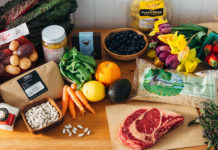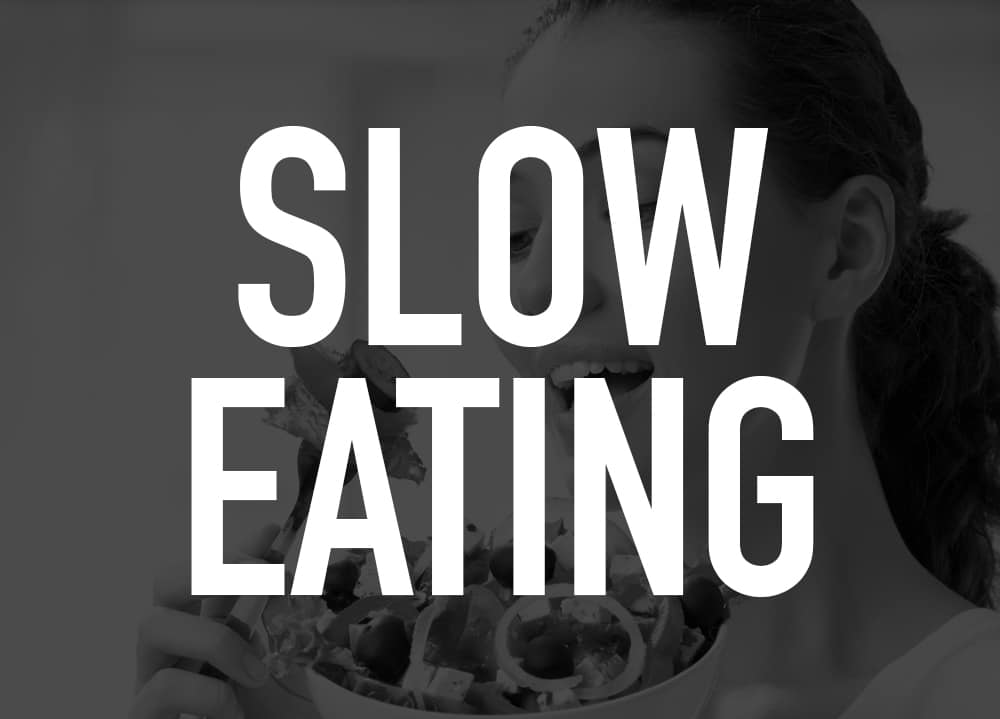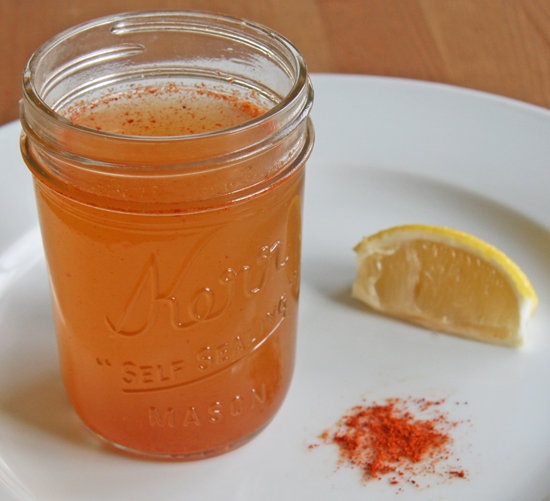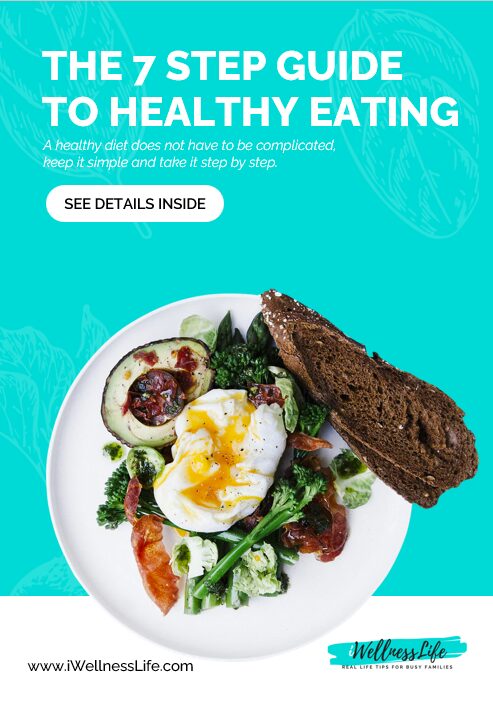In this era of fast-paced everything, even the act of eating a meal has become something we can do on the run. Breakfast comes in bars, lunch can be eaten while speeding down the highway, and dinner is merely an accompaniment to the evening news, squeezed in between other pressing activities. Invariably, when eating plays second string to everything else, every meal becomes “fast food,” as in eaten-very-fast food.
Slow Down and Chew More
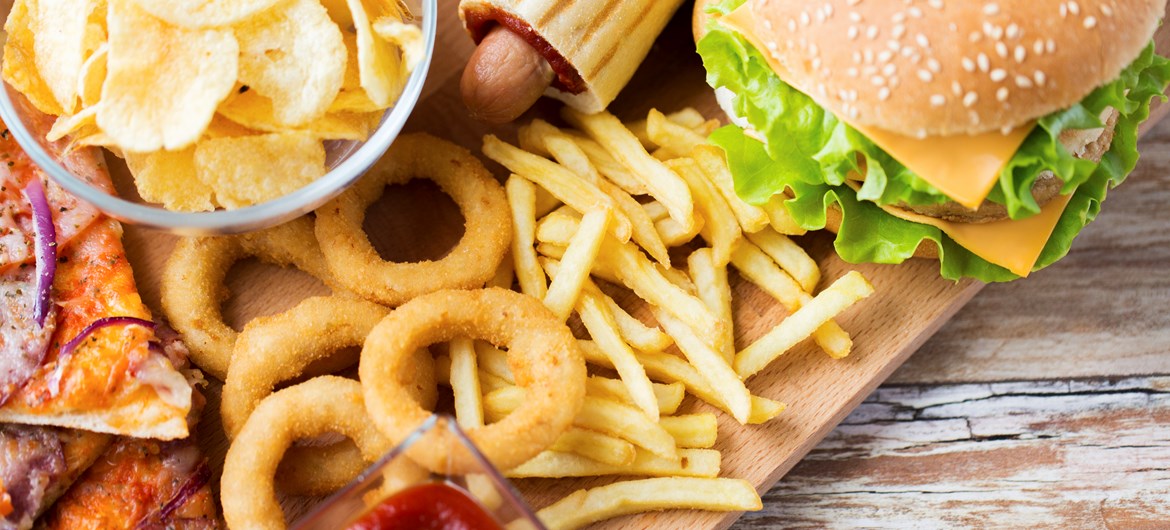 If you find yourself wolfing down your meals in a hurry, you’re actually short-changing yourself in more ways than you might think. It turns out there’s a reason food tastes so good. You’re supposed to enjoy it—slow down and savour it, not just get it to your stomach as quickly as possible. Chewing your food thoroughly is actually the first step in the complex process of digestion, and if you glaze over it, just chewing the minimum amount of times necessary to get the food down your esophagus, you’re actually compromising this process. And it’s a mistake many people make.
If you find yourself wolfing down your meals in a hurry, you’re actually short-changing yourself in more ways than you might think. It turns out there’s a reason food tastes so good. You’re supposed to enjoy it—slow down and savour it, not just get it to your stomach as quickly as possible. Chewing your food thoroughly is actually the first step in the complex process of digestion, and if you glaze over it, just chewing the minimum amount of times necessary to get the food down your esophagus, you’re actually compromising this process. And it’s a mistake many people make.
If you try to imagine swallowing a whole piece of pizza, it’s easy to see why chewing is necessary. But besides breaking up your food into manageable chunks, there’s another good reason to put in the effort and chew. The saliva that coats your food as you chew actually contains digestive enzymes that begin to digest your food before you even swallow it. The enzymes alpha-amylase and lingual lipase begin digesting carbohydrates and fats, reducing the amount of work for which the stomach will be responsible. And it isn’t just a nice gesture. If food fragments are swallowed un-chewed, not only do nutrients remain locked in the fragments, but these fragments create an environment in the colon that is conducive to digestive distress bacterial overgrowth, gas, and bloating.
For food particles to even leave your stomach though, the “gates” of the stomach, the pyloric sphincter, must open. Conveniently, chewing also aids in this process, signalling this event. And speaking of signals, just seeing your food causes your brain to send signals to the pancreas and stomach to secrete digestive acids and enzymes that are essential to digestion. And the longer your food has contact with your taste and smell receptors—the longer you chew each bite—the stronger these signals become. Strong signals mean more digestive molecules, less indigestion, less acid reflux, and superior nutrient absorption. Chewing your food thoroughly and eating your meals more slowly has another benefit. It might shrink your waistline—and not just because you’ll have less bloating and indigestion. Eating more slowly gives your body a chance to tell your mind that it’s full, so that you stop eating before you go overboard. In a preliminary study presented at the North American Association for the Study of Obesity’s Annual Scientific Meeting, study subjects ate less when they were instructed to eat more slowly.
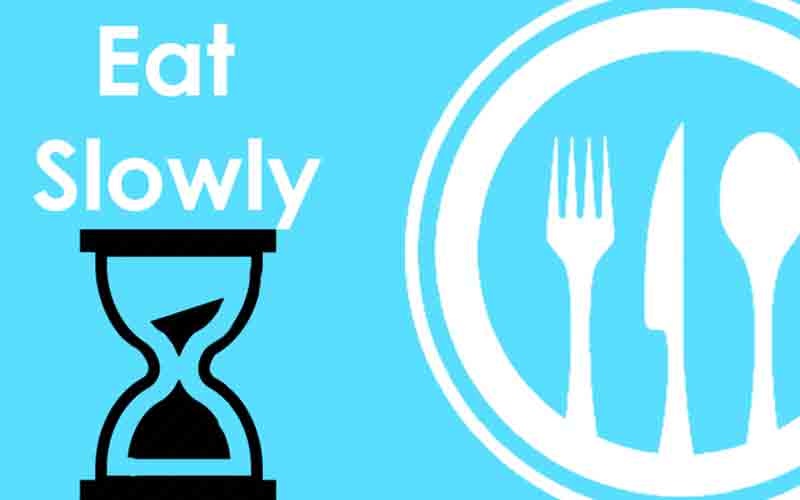 Here are some practical tips for chewing more thoroughly and eating more slowly:
Here are some practical tips for chewing more thoroughly and eating more slowly:
- Give yourself enough time to eat—at least 20-30 minutes just to eat the meal, plus additional time to prepare it.
- Don’t eat amidst distractions, like the TV, computer, or while driving.
- Be fully present while you eat. Notice the smell, temperature, texture, color, and subtle flavour differences of each food you consume.
- Take smaller portions, taking a break before refilling.
- Put your fork down after each bite.
- Eat mindfully, chewing each bite as many times as necessary to pulverize any texture
- If you’re eating in a group, be aware of the speed at which others are eating. Challenge yourself to be the last to finish.
- Do not drink liquids with the meal. Drink before and n10 minutes after. This allows digestive enzymes to do their job before they are washed down the esophagus
Besides all of the physical benefits, perhaps the most pleasant benefit of all is that, if you allow yourself to slow down and chew, you’ll enjoy your food much more.

Subscribe To Our VIP Newsletter
Join our VIP mailing list to receive additional content that goes even deeper into the latest tips to ensure you and your families health, fitness and wellness.





